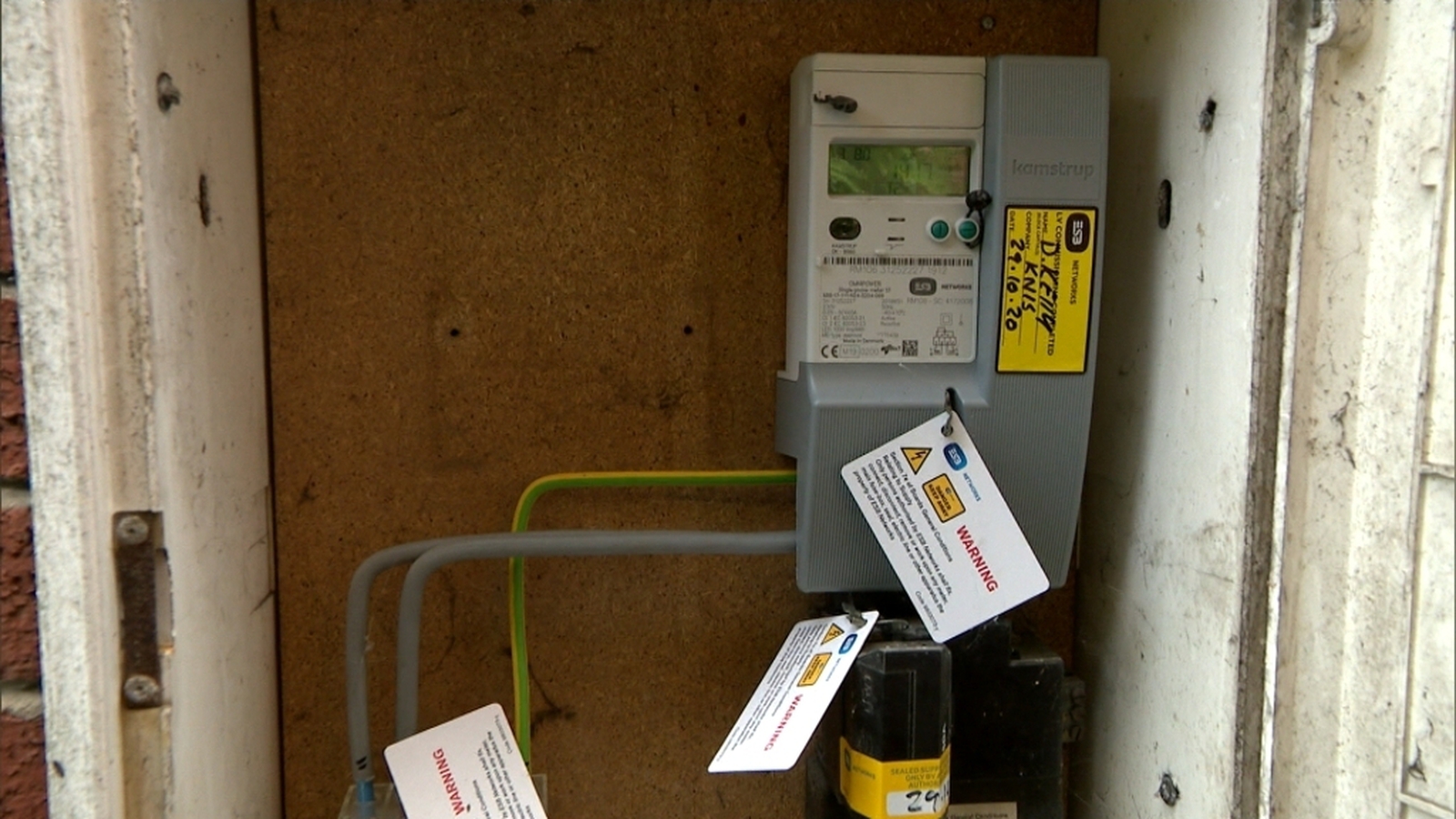As smart meters continue to be installed in homes and businesses across the country, electricity users have been urged to carefully consider their options before agreeing to a tariff.
Large energy consumers and residential customers with “smart tariffs” will see their electricity costs increase during peak hours from 5 p.m. to 7 p.m., but lower prices outside of peak hours.
Marc Byrne and his wife Sarah Hennessy signed up for a smart meter tariff after installing a new smart meter in their home.
“We are on a tariff where we have free electricity all day Saturday, so we tend to let the laundry pile up and then the machine runs at 90 hours all day,” he explains.
“It’s great because it saves us a lot of money this way.”
“It was really awesome for us. We have two very young kids at home, so as you can imagine there’s a lot of laundry to do every week,” he said.
The smart meter also provides the family with detailed information about their electricity consumption.
“You can look at your usage across different devices from month to month and compare yourself to other homes to see how you’re doing compared to an average home or a highly efficient home,” said Mr. Byrne.
Marc and Sarah are among 38,000 households to have signed up for smart tariffs, even though Electric Ireland has installed 960,000 smart meters in homes and businesses across the country.
The company wants all its customers to have smart meters by the end of their current installation program – 2.4 million smart meters in total.
We need your consent to load this content rte-playerWe use rte-player to manage additional content which may place cookies on your device and collect data about your activity. Please check their details and accept them to load the content.Manage preferences
So far, only 4% of those with smart meters have taken the next step and signed up for smart tariffs.
Darragh Cassidy, head of communications at switching site Bonkers.ie, said: “At the end of the day, smart meters are a really good idea.
“They have many advantages and have been successfully deployed in many European countries.”
“The big problem at the moment is that smart tariffs for people with smart meters aren’t always great value and some people, if they’re not careful, when they switch from a normal tariff to a smart tariff might actually end up spending more on electricity than they otherwise would have.”
Consumers who have day and night meters could be in this category, he says.
“People who…use a lot of electricity at night might find some of the smart tariffs particularly unattractive. So all you need to do is do your research, understand and know when you’re using your electricity, and make sure you sign up for the good plan. .”
Cassidy also points out that once you switch to a smart fare, you can never go back to the old fare system.
This week, the Utilities Regulatory Commission (CRU) announced that electricity companies will have to pay an additional 10% in network costs during the peak usage period from 5pm to 7pm and will pay 10% less in hours hollow.
As a result of this decision, it is hoped that energy companies will in turn offer consumers tariff offers that will take them away from peak consumption.
The CRU sees huge benefits in smart tariffs for consumers.
Karen Trant, Director of Policy and Customer Protection at CRU, says: “Smart pricing…gives customers the ability to see their usage, change their behavior if they want to save money.
“This is good news for customers. Data is essential.”
Ms Trant says that in November there will be “a data hub through which they can come in, see their usage over a period of time…and maybe understand where their peak usage is or if they can save money on some of them the smart fares that are out there.
“I know some providers offer a free Saturday, some offer a night boost where if you have an EV you can decide it can turn on (to charge) at a particular time of night so it there’s a lot of choice and that’s what we want for customers.”
Back at the Byne/Hennessy house, Mr Byrne says their monthly electricity bill is around £100 and he is very happy with it.
However, it is also careful to get the best smart tariff deals available; changing supplier regularly.
“After 12 months with a supplier, those big discounts they give new customers for the move expire,” he said.
“So when that period is reached, we are always looking to trade and enjoy another year of discounts.”

